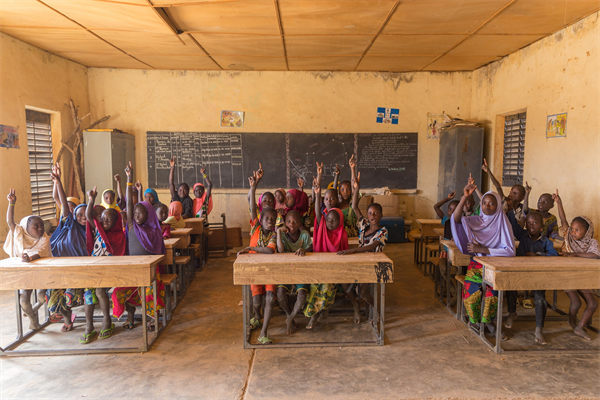The health, education and safety of millions of children is threatened because they do not have access to a decent toilet, according to WaterAid’s new report.
The 2018 The Crisis in the Classroom report finds that one in five primary schools and one in eight secondary schools globally do not have any toilets. Guinea-Bissau on the coast of West Africa tops the table for the worst in the world for school toilets.
CEO of WaterAid, Rosie Wheen, said: “Bringing safe toilets to the one in three schools worldwide with no adequate toilets should be a top priority.”
She added: “Children in every country of the world need access to safe toilets at home and at school. Their health, education and safety depend on it. Every child should be able to go to the toilet safely and with dignity whether they are at school or at home.”
One in three of the world’s schools lack adequate toilets, which leaves children open to unsafe and unsanitary environments. This is dangerously exposing young children to increased chances of malnourishment and, in some cases, death.
This does not end at school, with the report finding 334 million children in sub-Saharan Africa do not have a decent toilet at home. Ethiopia tops the list with an astonishing 93 per cent of households without a decent toilet, leaving children open to infections.
Closer to Australia, Papua New Guinea comes third in the list of countries where the proportion of people with decent toilets at home and school is decreasing. The country suffers from 220 child deaths each year due to water and sanitation-related diarrhoea. Recently polio, a waterborne disease, returned to the island.
“This World Toilet Day report reinforces the importance of WaterAid Australia’s vital work in Papua New Guinea, where less than half of all students have a decent toilet.”
The report found that diarrhoea caused by dirty water and poor sanitation kills 289,000 children under five every year and kills more than 140,000 children between five and 14 each year, many of which could have been prevented with good hygiene.
In South Africa, more than a third of girls miss school during their period. Additionally, Madagascar is the third worst country in the world for access to a decent toilet at home, with just one person in ten having at least basic sanitation.
Some countries have made decent toilets at school a priority. Over half of schools in Bangladesh now have a decent toilet, and shared toilets in slum areas are providing a stepping stone to better health. Almost all schools in India also have basic access.
WaterAid is calling for governments to invest more money in sanitation and ensure an integrated approach and improved transparency in monitoring and reporting. It has also called for education and finance ministers across the world to invest in credible plans for achieving universal access within an agreed timeframe.
School sanitation should also be made to meet the specific needs of girls and to be inclusive of children with disabilities to have access to safe and clean toilets.
“Progress towards any of the UN Sustainable Development Goals will not be possible without clean water, decent toilets and good hygiene,” Wheen said.
“If we are serious about all children and young people, wherever they are, whatever their gender, physical ability or community background, having their right to clean water and sanitation, we must take decisive and inclusive action now.”












